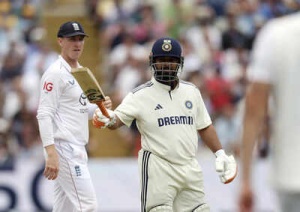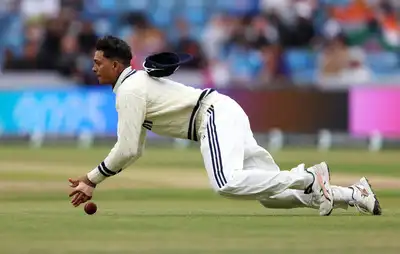Hydration plays a vital role in overall health, but when and how much you drink matters. Consuming large amounts of water immediately after meals may seem harmless, but it can dilute digestive enzymes, slow nutrient absorption, and cause bloating or discomfort. Over time, this habit may impact digestion and overall wellness. In rare cases, excessive water intake can even lead to hyponatraemia, a condition caused by low sodium levels in the blood. Understanding the best way to hydrate, such as sipping water before or between meals, helps maintain digestion, prevent discomfort, and support better health without compromising essential hydration needs.
How drinking excess water with meals disrupts digestion
Your stomach relies on gastric juices, including acids and enzymes, to break down food effectively. Drinking too much water immediately after a meal can dilute these digestive fluids, slowing the process and reducing nutrient absorption. A controlled study published in The American Journal of Clinical Nutrition found that consuming large amounts of water with meals can alter satiety and digestion, potentially leading to discomfort. Over time, this habit may contribute to bloating, indigestion, and inefficient nutrient uptake, highlighting the importance of moderation in post-meal hydration.
Symptoms you might notice after drinking too much water after meals
Excess water intake immediately after eating can cause noticeable discomfort and affect digestion. Common symptoms include:
- Bloating and heaviness: Feeling overly full or distended after a meal.
- Indigestion: Slow or incomplete digestion leading to discomfort.
- Nausea: Overhydration can upset the stomach, causing queasiness.
- Frequent urination: Drinking too much water may lead to increased trips to the bathroom.
- Mild headaches or fatigue: In rare cases of excessive water intake, these can signal electrolyte imbalance.
If these symptoms occur regularly, it may be a sign you’re drinking more water than your body needs after meals.
Risks of drinking excess water with meals
While staying hydrated is crucial for health, overhydrating immediately after meals can disrupt digestion and overall wellness. Here are the main risks to be aware of:
1. Dilution of digestive enzymesYour stomach needs a concentrated mix of gastric juices to break down food effectively.
Excess water right after eating dilutes these enzymes, slowing digestion and reducing efficiency.
2. Reduced nutrient absorptionA proper acidic environment is essential for nutrient breakdown. Too much water post-meal can lower stomach acidity, impairing absorption of vital vitamins and minerals like iron and B12.
3. Bloating and discomfortOverhydrating after meals can cause stomach distension, a heavy feeling, and bloating. This can lead to sluggishness and even reduced appetite for your next meal.
4. Rare risk of hyponatraemiaIn extreme cases, drinking too much water too quickly lowers blood sodium levels, causing nausea, headaches, and confusion. Though rare, severe cases can be life-threatening.
5. Best timing for hydrationFor optimal digestion, drink water 30–60 minutes before meals. During meals, take only small sips and avoid large volumes until digestion is underway.
Smart strategies for healthy hydration
- Drink a glass of water about half an hour before your meal.
- Take small sips during your meal instead of drinking in large quantities
- Opt for warm or room-temperature water, which is gentler on digestion.
- Include water-rich foods like cucumber, melon and soups in your diet.
- Spread your water intake evenly throughout the day instead of drinking most of it at once.
There is no one-size-fits-all recommendation. While eight glasses a day is a common guideline, your needs depend on activity level, climate and overall health. Focus on steady hydration and listen to your body’s thirst cues rather than overconsuming water at any single time.
FAQs
1. Is it bad to drink water immediately after eating?
Drinking a few sips is fine, but large amounts right after a meal can dilute stomach acids and slow digestion.
2. How long should I wait before drinking water after eating?
Experts suggest waiting 30–60 minutes after a meal before drinking significant amounts of water.
3. Is drinking cold water after meals harmful?
Cold water can slow digestion slightly and may solidify fats in food, making them harder to digest. Room-temperature or warm water is better.
4. Can drinking water while eating cause weight gain?
No, water does not cause weight gain. However, overhydration during meals can cause temporary bloating and discomfort.
5. What is the best way to stay hydrated without affecting digestion?
Sip water throughout the day, drink a glass before meals, and avoid chugging large amounts immediately after eating.
Disclaimer: This article is for informational purposes only and does not constitute medical advice. Always consult a qualified healthcare professional before making any changes to your health routine or treatment.
Also read | Best time to eat dry fruits and nuts for weight management, boost energy, and better sleep
 Gavaskar Calls for Kuldeep Yadav's Inclusion in Second Test Amid Bumrah Fitness Concerns
Gavaskar Calls for Kuldeep Yadav's Inclusion in Second Test Amid Bumrah Fitness Concerns
 Early Warning Signs: 5 Heart Attack Symptoms to Watch Out For a Month in Advance
Early Warning Signs: 5 Heart Attack Symptoms to Watch Out For a Month in Advance
 Oral Cancer: Spot the Signs, Understand the Risks, and Why Early Detection is Key
Oral Cancer: Spot the Signs, Understand the Risks, and Why Early Detection is Key
 Rishabh Pant's Composed Reply Deflates Harry Brook's Sledge in Edgbaston Test: Watch Key Moments
Rishabh Pant's Composed Reply Deflates Harry Brook's Sledge in Edgbaston Test: Watch Key Moments
 Science-Backed: Simple Habits for a Stronger Heart, According to Experts
Science-Backed: Simple Habits for a Stronger Heart, According to Experts
 Jaiswal Aims to Eclipse Gavaskar's 49-Year-Old Record in Edgbaston Test Showdown
Jaiswal Aims to Eclipse Gavaskar's 49-Year-Old Record in Edgbaston Test Showdown
 Rohit Sharma Credits Barbados as India's Lucky Ground After T20 World Cup Triumph
Rohit Sharma Credits Barbados as India's Lucky Ground After T20 World Cup Triumph
 FIFA Club World Cup 2025: Upsets, Messi Magic, and 2026 World Cup Concerns Emerge From Group Stage
FIFA Club World Cup 2025: Upsets, Messi Magic, and 2026 World Cup Concerns Emerge From Group Stage
 Prithvi Shaw Admits to Missteps, Lost Focus Amid Career Setbacks
Prithvi Shaw Admits to Missteps, Lost Focus Amid Career Setbacks
 India's Fielding Failures Under Scrutiny After First Test Defeat to England: Former Selector критикует Dropped Catches
India's Fielding Failures Under Scrutiny After First Test Defeat to England: Former Selector критикует Dropped Catches